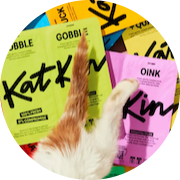UTM Codes
UTM tracking codes are a key part of Google Analytics, helping brands track performance of different marketing channels, campaigns and keywords. In this short guide we explain a little more about these codes and the reason for their name.
What does UTM stand for?
UTM stands for Urchin Tracking Modules. The name Urchin comes from the original analytics company, Urchin that was the foundation for the Google Analytics we know today.

UTM Tracking
UTM tracking is the code that helps Google Analytics understand where web traffic has come from. You don’t need any special tracking code to understand the basic channel breakdown of traffic, but UTM tracking can help you with more granularity.
With paid search, you can create different codes to differentiate between different campaigns, keywords or ad groups. For organic search it can be used to break out certain elements, like Google My Business for more granular tracking.
How does UTM Work?
UTM works by providing a code that will be recognised by Google Analytics. This code is appended to the end of the url you want to track. By adding ?UTM= to a url you have alerted GA that there is a tracking code on the url.
But just appending UTM to the url does is only half the battle. The next part is to define the additional tracking parameters you want to share with Google. These are standardised so Google can correctly attribute traffic to the right channel and source.
- utm_id Campaign ID
- utm_source e.g. Google (required)
- utm-medium e.g. cpc (required)
- utm_campaign – Campaign Name
- utm_term – Campaign Term e.g. wool sneakers
- utm_content – used to test different variations of the same ad
Appending any of these to a url will then provide tracking into Google Analytics. For example, the url
https://escaping-gravity.com/seo-consultancy/?utm_source=Google&utm_medium=Organic+Search&utm_campaign=EGContent&utm_content=UTMGuide
tells Google Analytics that the SEO Consultancy link should be tracked from Google and reported in the Organic Search channel as part of the of the EGContent campaign.
For major campaigns you can spend some time defining a tracking taxonomy to ensure all tracking is consistent. Third party tools like this campaign url builder can help you create UTM tracking codes with ease.
UTM & SEO
For standard SEO campaigns you won’t need to implement UTM codes. But for more advanced strategies you may find they offer valuable insights. Talk to use if you want to know more about how we use then for organic search success.
Significant Growth
“Escaping Gravity built and executed our SEO strategy from nothing to achieving significant growth in traffic and sales, unlocking Organic Search as an acquisition channel.
It was a pleasure to work with such an expert and client-caring team..”

Our Approach to SEO
Each SEO project we undertake is clearly defined, transparent and ‘white hat’. Our goal is to inform and empower you to understand the full potential of SEO as part of your marketing strategy. Talk to us and find out more.
Working with Inspirational Brands
We are proud to be working with these inspirations brands, and more.





